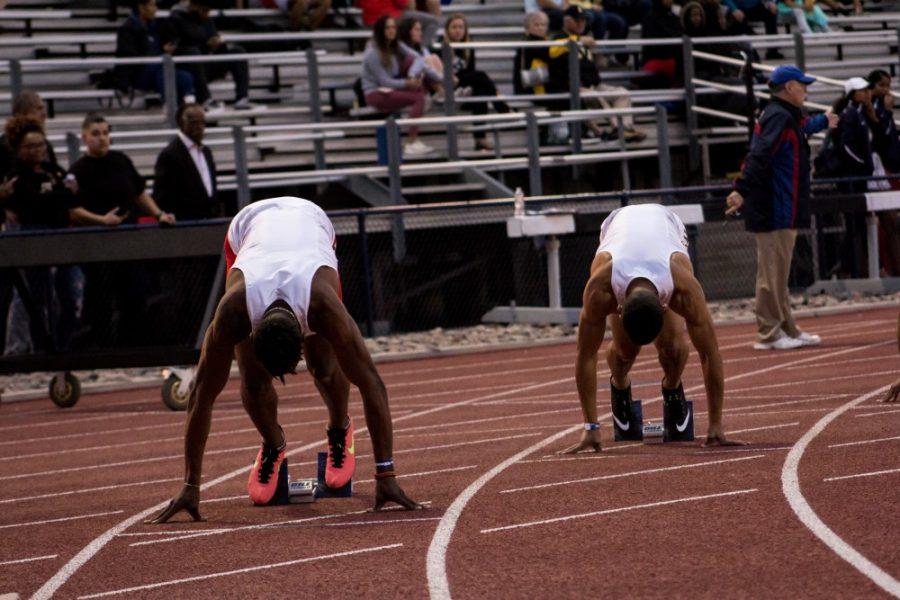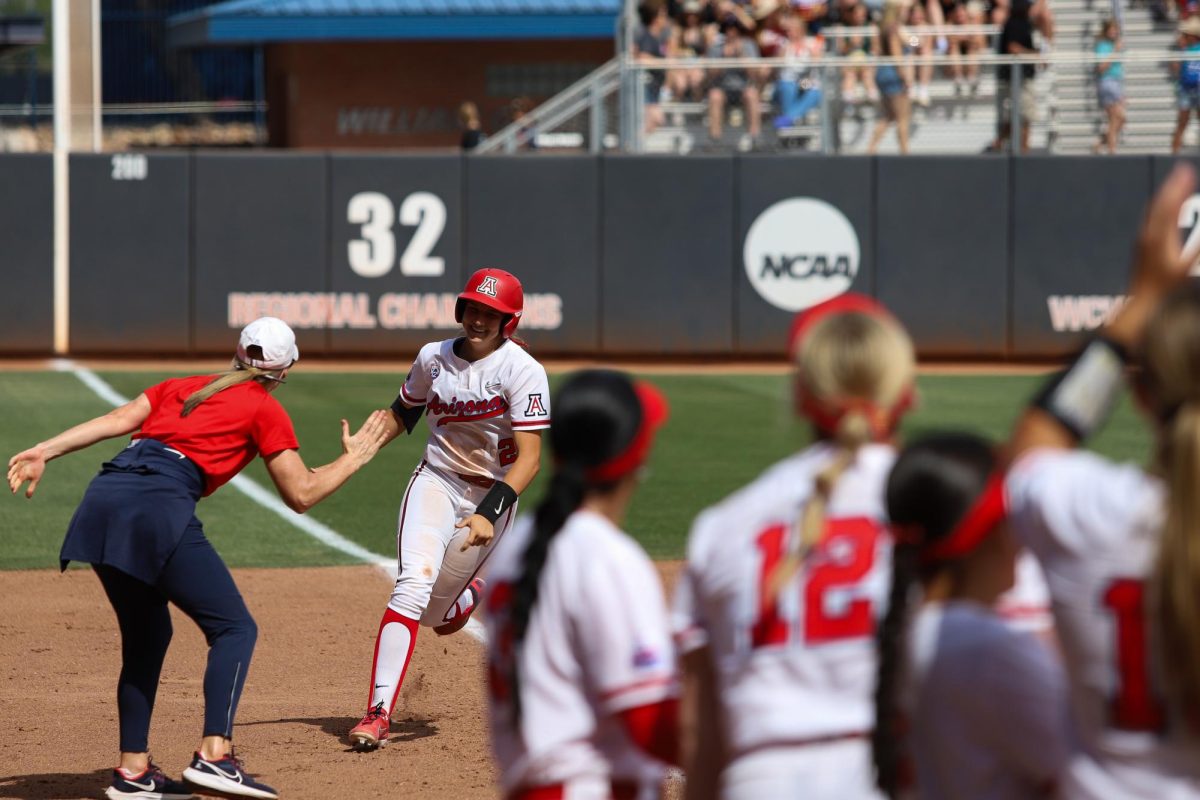The Navy Seals like to say, “The only easy day was yesterday,” and so does University of Arizona’s star track athlete Maj Williams as he commits himself to the pursuit of excellence and a spot in the 2020 Olympics.
Williams is the top 400-meter runner at the UA. He represented the U.S. at the World U20 Championships in 2018, and even while battling an injury all of outdoor season in 2019, he was still able to show off in the NCAAs. He’s a Pac-12 champion in the 4×400 and never fails to make a personal record each season.
The average day for Williams starts with facing his alarm clock at the crack of dawn for a lift. He grinds in the weight room to ensure he’s able to pull away from the pack. Next stop is tutoring and classes. From there, it’s back on the track, where he is running a punishing regimen of repeat 600-meter sprints that are followed by 200s. Aside from earning the right to take four-hour naps or engaging in extensive video game battles, it’s easy to wonder what the rewards are and what pushes Williams to put in so much effort day in and day out.
“For me, it’s always remembering why I run,” Williams said. “There’s a lot of people I run for. My dad used to run, and a lot of my friends can’t run now and have graduated without getting to accomplish what they wanted to do, so I use the lessons they have taught me through track, being a teammate and being a brother.”
One of the biggest lessons Williams has learned as an athlete is that “it’s never going to be easy to be great.”
Williams isn’t the kind of person that believes in limits, which is why his drive to work hard and push himself is so strong. He sees the human body as a complex machine whose full potential is yet to be unlocked. It is really the mental barriers that tend to get in the way rather than the physical. Williams said he knows that if he puts in the work, his body is going to carry him there, but it’s about having the mentality to do that, and track is certainly the sport to test it.
“This just isn’t the sport for people with normal mentalities,” Williams said. “Track is one of the hardest mental sports I have ever taken part in, and I have played basketball and football, but I think mentally this is the hardest. It’s not easy telling your body to sprint an entire lap, especially against seven other people.”
To go against this mental barrier, Williams’ goal is to go into ultra-instinct, where thoughts are second to instinct. This ability is gained through practice, through knowing what your body can and will do.
“You let your body take over for the time being without being slowed down by thought,” he added.
Williams’ hard work to put himself in control of his mental and physical states is one of the reasons he has become a leader on this team. He shows the newbies that “the culture here is hard work.”
Freshman and sophomore year, Williams showed his leadership by example: going to practice, staying in, working hard in school and committing to push his body. As a junior now, Williams has started to be more of a vocal leader in workouts because he wants the freshmen to know what hard work can do for them.
This is not to say that working hard doesn’t come with having some fun. Some of Williams’ favorite memories come from pushing his fitness on the track. Arizona’s former runner David Egbo used to battle out the last reps with Williams.
Williams and Egbo would call it “their ultimate battle,” which, as Williams would be upset if you didn’t know, is a reference to the anime “Dragonball.” Williams would be Jiren and Egbo would be Goku. Like Williams and Egbo, Jiren and Goku like to test each other’s limits to see how far they can push themselves. So if the workout was 12 150-meter sprints, Williams and Egbo are going all out in that last 150 as their last fight for the day. For them, anime is their secret to getting hyped up for workouts and meets.
Williams said he uses the lessons his friends have taught him through track, so if Egbo is Goku, then the lesson “I could go one step further if I wanted to” is surely embedded in the back of Williams’ mind.
Williams’ determination to work hard is the key factor to what allows him to accomplish his goals. He started college running a 400 in the 47s and, because of his grind, his goals this year are consistently low 44-second 400s to qualify him for the Olympic trials, a 100 at 10.2 seconds and better starts for the first 40 meters and a 20.2 second 200.
In addition, Williams’ determination to lead is going to be the key factor to the team’s relay goals of the 4×100: redeeming themselves back at nationals this year and making it to the finals in nationals and hitting that three-minute mark.
To Williams, the workouts of track are about learning to manage time, learning to manage your body and learning to manage your health. It teaches him and his teammates how to be accountable and focus on getting better as a person and athlete every day, especially since the only easy day was yesterday.
Follow Johnnie Mitchell on Twitter









